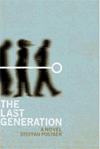
A story of Lions and Excess…
The Cannes International Festival of Advertising is finis. All over Adland people are back at their shops tweaking layouts, creating and debating Power Points and churning out banners. The business of marketing continues. Yet the hangover persists. Not from the overpriced rose’ in Cannes but from its overwrought festival. In the wake of Publicis’ controversial decree to forgo one year of entering work into Cannes or any other awards show, a hazy doubt remains, wafting in it lingering questions about the role of award shows, the cost to participate, and the value they provide.
No doubt award shows had their place, back when work was difficult to share and people harder to connect. But in the age of social media, nothing could be farther from the truth. Everyone sees everything. Shit is condemned. Cream rises to the top. By the time an ad wins an award it has been praised or vilified ad nauseam. Awards have become anti-climactic. Gilding the Lily if you will. Of course recognition is critical for agencies and their people. But claiming prizes well after the fact is antiquated.
But there’s another mitigating fact. Award shows cost a ton of time and money for agencies to participate. I think more than an App named Marcel, this is the real reason Publicis CEO, Arthur Sadoun pulled the plug. In these increasingly difficult times, he saw millions of dollars in savings. The bottom line is the bottom line.
And for this, we cannot blame him. I believe it costs around a thousand dollars to enter a piece of work at Cannes into a sole category. And there are thousands of categories with more every year. Nearly 1,500 Lions were given out this year. Out of God knows how many entries. You do the math. Agencies desperation to win coupled with outright greed by award show executives created a perfect storm. One must pay to play. The gross is gross.
I don’t think award shows should go away –necessarily- but clearly they need to be brought down to earth. There are too many shows with too many categories. Period.
Forget the many losers at Cannes. Let’s look at two of the biggest winners.

“Meet Graham”

“Fearless Girl”
Clemenger BBDO Melbourne was awarded 29 Lions & 2 Grand Prix for their “Meet Graham” campaign. McCaan New York received 18 Lions and 4 Grand Prix for their “Fearless Girl” statue on Wall Street. No question these are wonderful and deserving ideas. But 18 and 29 Lions? That’s icing on the icing on the icing. We may crave the sugar but it’s not good for anyone. Except, of course, the executives at Cannes. They’ll gladly exchange statues for cash.
If only a handful of Lions were given out they would mean so much more. But the current system demand quantity. The solution: Make the show a salon for great work and only give the most brilliant a prize. More like the film festival, which takes place a month before. Hell, if they can do it so can we. I know it’s a tough pill for the many profiteers to swallow. But it’s the right thing to do.
For copy, content and creative direction: https://steffanwork.wordpress.com/
Like a Gold Lion only golder!
My last post on corruption at the International Advertising Festival in Cannes drew quite a few readers, almost breaking the record on my humble little blog. Thank you…I guess. Nothing like timely controversy to goose a blog.
Anyway, I got to thinking about advertising awards shows and what makes them so popular despite the obvious chicanery. Scam ads are as common as pigeons. Most festivals happily accept them. Now we here tell of rigged juries and the calculated “killing” of good work so as to give crappier offerings a better shot. Corruption at all levels from agencies and festivals alike.
So, what is up with the popularity and propensity of advertising awards shows? The big ones continue to thrive despite shenanigans, to say nothing of economic recession and advertising downturns.
There are exactly three reasons why:
- On the receiving end it’s all about the money. Each submission has a startlingly high fee attached. Need I say more?
- Agency creative are egomaniacs with inferiority complexes. We think we are awesome and yet crave validation at every turn. I have this defect as much as you do.
- Awards shows are boondoggles. The judging and/or ceremonies usually take place in exotic locations, like New York or Cannes. We like going to them.
Money. Ego. Hedonism. In other words a petri dish for the awards show virus to flourish. Indeed, more and more strains are added to Cannes bloated category lists every year.
In a classic episode from season three of the Simpsons, “Brother, Can You Spare Two Dimes?” a routine physical exam at the Springfield Nuclear Power Plant reveals that safety inspector Homer Simpson has become sterile after being exposed to radiation. Fearing a lawsuit, plant owner Mr. Burns awards Homer with the “First Annual Montgomery Burns Award for Outstanding Achievement in the Field of Excellence” in exchange for a legal waiver freeing the nuclear plant of all liability.
Hmmmm, Excellence!
DDB chief blows smoke at Cannes…
Amir Kassaei is the Chief Creative Officer of DDB Worldwide, one of the shinier jewels in Omnicom’s empire of advertising and marketing services companies. Like a lot of creative generals, he spent last week in Cannes taking part in the International Advertising Festival, which, to replay the metaphor, is by far the shiniest jewel in the ever growing necklace of advertising award shows.
Mr Kassaei, perhaps flush with Rose’, also found time to go on record with some provocative accusations and opinions regarding the integrity of the juries at Cannes. He more or less states that certain jurors have a clear mandate to “kill off” competing work, regardless of its quality, if said work emanates from a competing agency. He claims this mandate is at the holding company level. This corruption does not sit well with Kassaei and he goes on record saying that they (DDB) need to have a “serious discussion” about participating in future Cannes if the behavior continues. Paraphrasing the creative director, he claims other less creative minded agencies are willfully endeavoring to “buy” their creative reputations by rigging juries. There’s plenty of texture to his arguments and I urge you to watch the video, even if his sipping of wine and the passing by of beach traffic grates.
As I tweeted earlier, my reaction to this is a cross between “WTF?” and “Duh!” On the one hand I’m appalled by Kassaei’s allegations. Like it or not, creative reputations are made by winning Lions at Cannes. To know that these prestigious trophies can be bought is repellant. What is more sad are all the legitimate submitters who may have lost out on their one shot at gold because of wheeling and dealing behind closed doors. But let’s not be naïve. We’ve known about these shenanigans for a long time. Indeed, when I judged the Dubai Lynx (the Cannes of the Middle East), I saw it first hand. I blogged that “all the good work was fake and all the real work was awful.” Understandably, that blog caused fervor and I was asked to remove it. Reluctantly, I did. Needless to say, I won’t be invited back to judge this festival anytime soon.
While creating and entering scam ads is an entirely different form of awards show corruption, and a pervasive one at that, knowing that judges and juries are culpable takes it to whole ‘nother level. Corroborating Kassaie’s accusations, here’s basically how it works. Through back channels and PR manipulation, agencies vie to get their creative superstars on juries. Once these individuals are confirmed, they are then sequestered to look at all the work coming from the various agencies within their network. They are then asked to vote, if at all possible, on these submissions. Since that is generally not allowed the next best move is to try and vote out the competition, which is a process that cannot really be monitored. And so it goes.
While I’d like to think my peers and I would never do such things a kind of nationalistic fervor happens in those darkened jury rooms, not unlike the ugly pride one sees during international soccer tournaments. Fouls and transgressions happen and they feed a growing fire. The urge to win Lions takes over. In the name of their agencies and even countries, good men do bad things.
The football analogy is apt. FIFA is constantly embroiled in corruption controversy, to say nothing of its countless dumbass fans degrading themselves in the name of competition. In America, the New Orleans Saints are currently dealing with charges of “head hunting” on the football field. And like the manufacture of false great ads (scams), athletes from all sports are being busted regularly for taking steroids and other illegal enhancement drugs. Corruption at all levels.
Yet, unlike professional sports, the general public (except maybe in Brazil) doesn’t give a shit about advertising awards. Relatively speaking, the media attention is minimal. Therefore, corruption buds like unchecked dandelions. And if the governing bodies of big time award shows are complicit, then you have zero integrity. Which is exactly what Amir Kassaei is suggesting.









 The Happy Soul Industry
The Happy Soul Industry The Last Generation
The Last Generation